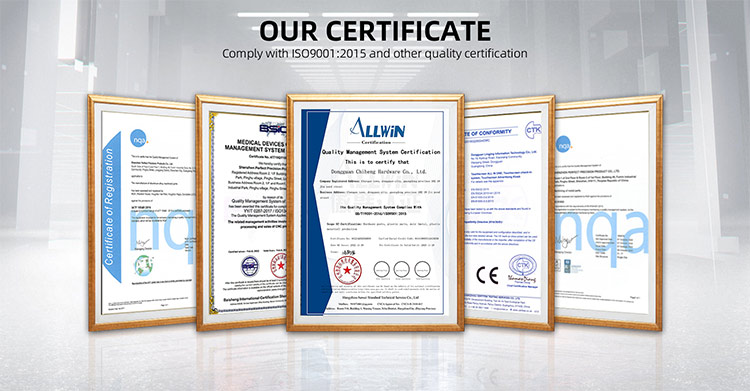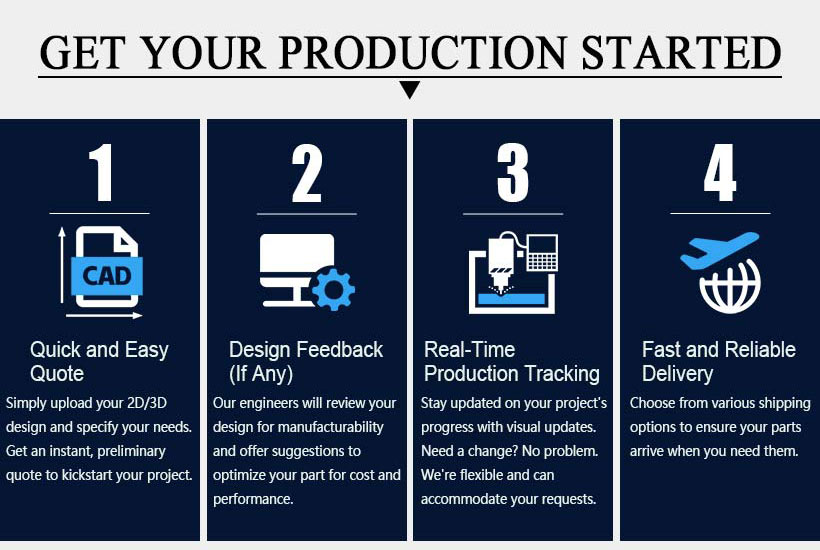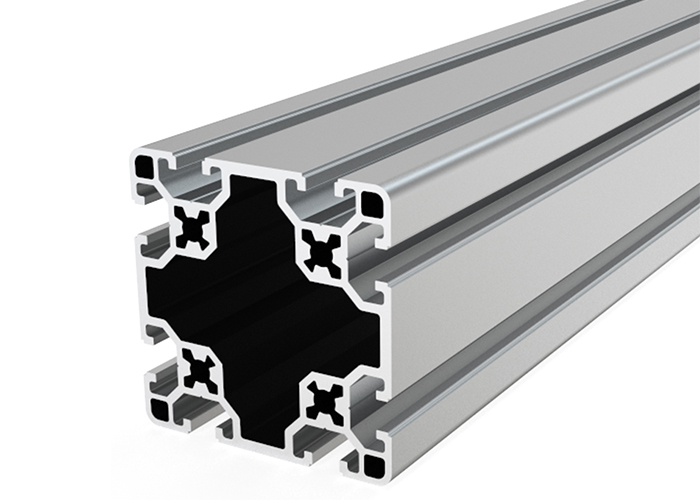Aluminum Extrusion
Metal Extrusion and Materials
Metal extrusion is a manufacturing process that involves forcing a metal, such as aluminum, steel, or copper, through a die to create a desired shape or profile. This process allows for the production of complex and intricate shapes that can be used in a wide range of industries, from construction and transportation to consumer goods and electronics.
One of the key materials used in metal extrusion is aluminum, a lightweight and durable metal that offers a unique combination of strength, corrosion resistance, and versatility. Custom aluminum extrusion, in particular, has become increasingly popular due to its ability to deliver precise, customized parts and components that meet the specific needs of various applications.
What is Aluminum Extrusion?
Custom aluminum extrusion is the process of creating unique, tailor-made aluminum profiles or shapes that are specifically designed to meet the requirements of a particular project or application. Unlike standard, off-the-shelf aluminum products, custom extrusion allows for the creation of one-of-a-kind parts that are optimized for performance, aesthetics, and functionality.
The process of custom aluminum extrusion begins with the design and engineering of the desired profile, taking into account factors such as structural integrity, weight, and cost-effectiveness. The aluminum billet is then heated and forced through a specialized die, which gives the metal its final shape and form. This process allows for the creation of intricate, complex, and highly customized aluminum parts that can be used in a wide range of industries.
Steel Extrusion: A Comparison to Custom Aluminum Extrusion
While aluminum is a popular choice for metal extrusion, steel is another material that is commonly used in this manufacturing process. Steel extrusion shares many similarities with custom aluminum extrusion, but there are also some key differences to consider:
Strength and Durability: Steel is generally stronger and more durable than aluminum, making it a better choice for applications that require high levels of strength and resistance to wear and tear.
Weight: Aluminum is significantly lighter than steel, which makes it a more suitable choice for applications where weight is a critical factor, such as in the transportation and aerospace industries.
Corrosion Resistance: Aluminum is naturally more resistant to corrosion than steel, which can be an important consideration for outdoor or harsh environments.
Thermal and Electrical Conductivity: Aluminum has a higher thermal and electrical conductivity than steel, making it a better choice for applications that require efficient heat or electrical transfer.
Cost: Steel is generally less expensive than aluminum, which can be a significant factor in certain industries or applications.
When choosing between steel and aluminum extrusion, it is important to carefully consider the specific requirements of the project, including factors such as strength, weight, corrosion resistance, and cost, to determine the most appropriate material and extrusion technique.
Finishes of Extrusion
One of the key advantages of custom aluminum extrusion is the wide range of finishes and treatments that can be applied to the extruded parts and components. These finishes can enhance the appearance, durability, and functionality of the aluminum, making it an even more versatile and attractive choice for a variety of applications.
Some of the most common finishes for custom aluminum extrusion include:
- Anodizing: This process involves the electrochemical treatment of the aluminum surface, which creates a durable, protective oxide layer that can be colored or left clear.
- Painting and Powder Coating: Aluminum extrusions can be painted or powder coated in a wide range of colors and finishes, providing both aesthetic and protective benefits.
- Polishing and Brushing: These mechanical finishing processes can be used to create a smooth, reflective, or textured surface on the aluminum extrusion.
- Thermal Treatments: Heat-treating processes, such as tempering or solution heat treatment, can be used to enhance the strength and hardness of the aluminum.
- Plating and Coatings: Aluminum extrusions can be plated or coated with other materials, such as chrome or nickel, to improve their corrosion resistance, wear resistance, or visual appeal.
The choice of finish for a custom aluminum extrusion will depend on the specific requirements of the application, as well as aesthetic and performance considerations.
Factors to Consider When Choosing a Metal Extrusion Technique
When selecting a metal extrusion technique for your project, there are several key factors to consider:
- Material Properties: The specific properties of the metal, such as its strength, weight, and corrosion resistance, will play a significant role in determining the most appropriate extrusion technique.
- Part Complexity: The complexity of the desired shape or profile will influence the type of die and extrusion process that is required to achieve the desired results.
- Production Volume: The anticipated production volume will also be a critical factor, as some extrusion techniques may be more cost-effective for high-volume production, while others may be better suited for smaller, more specialized runs.
- Cost and Lead Time: The cost of the extrusion process, as well as the lead time required for production, are important considerations that can impact the overall feasibility and viability of a project.
- Finishing Requirements: The desired finish or surface treatment for the extruded parts, such as anodizing, painting, or plating, will also need to be factored into the selection of the appropriate extrusion technique.
By carefully evaluating these factors, you can ensure that you select the most appropriate metal extrusion technique for your project, maximizing the benefits of custom aluminum extrusion or other metal extrusion processes.
-
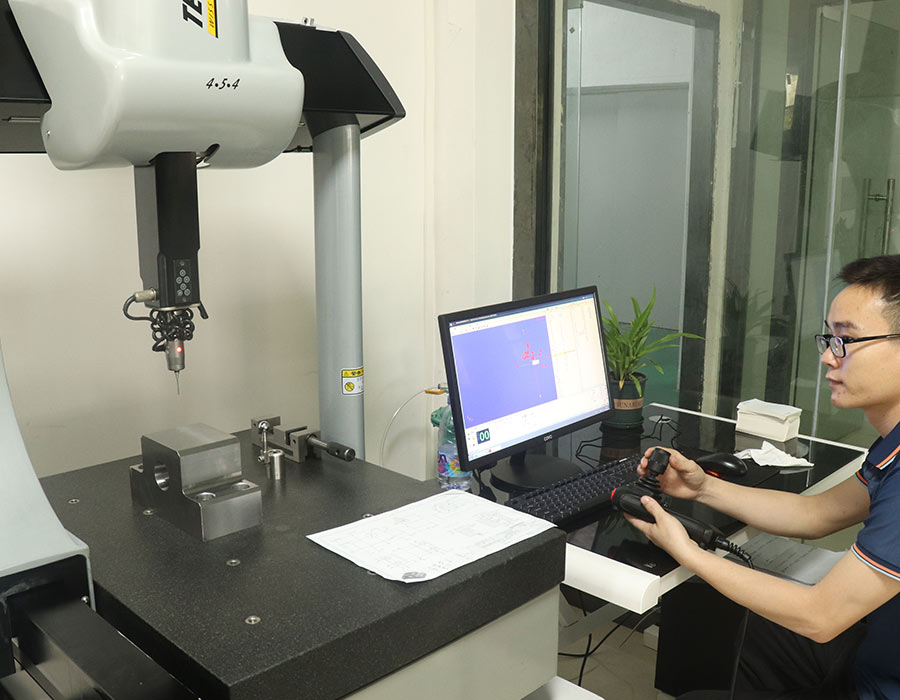 TolerancesOur commitment to quality is evident in our standard tolerance of 0.005mm. This level of accuracy is ideal for applications requiring tight tolerances, such as medical devices, automotive components, and scientific instruments.
TolerancesOur commitment to quality is evident in our standard tolerance of 0.005mm. This level of accuracy is ideal for applications requiring tight tolerances, such as medical devices, automotive components, and scientific instruments. -
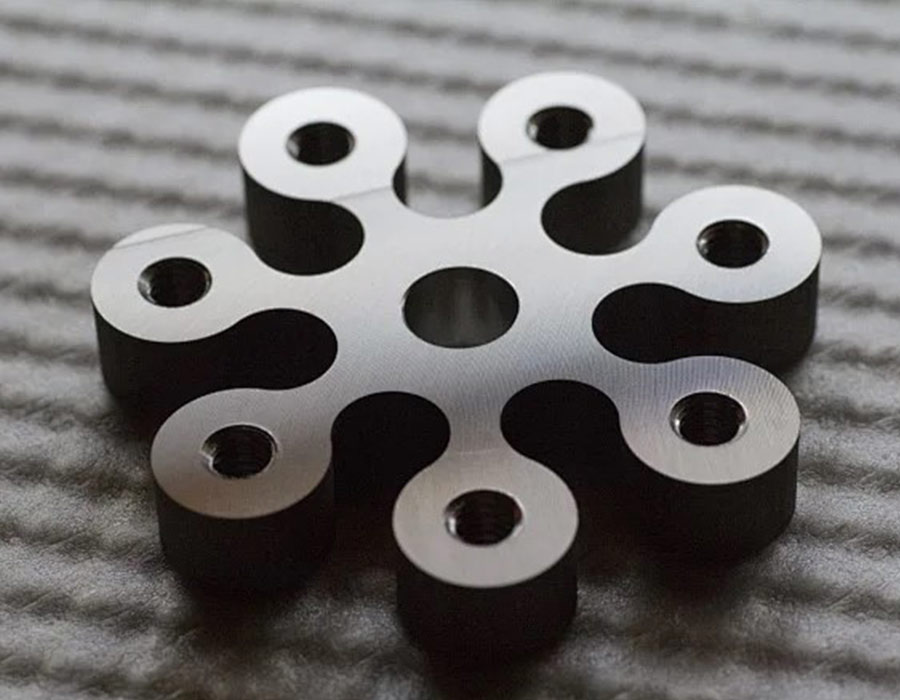 Materials SelctionTailor your parts to perfection with Chiheng's diverse material selection. Our comprehensive material library offers over 50 options, allowing you to select the ideal material for your specific application. From wear-resistant plastics to high-strength metals, we have the versatility to create custom parts that meet your unique performance needs.
Materials SelctionTailor your parts to perfection with Chiheng's diverse material selection. Our comprehensive material library offers over 50 options, allowing you to select the ideal material for your specific application. From wear-resistant plastics to high-strength metals, we have the versatility to create custom parts that meet your unique performance needs. -
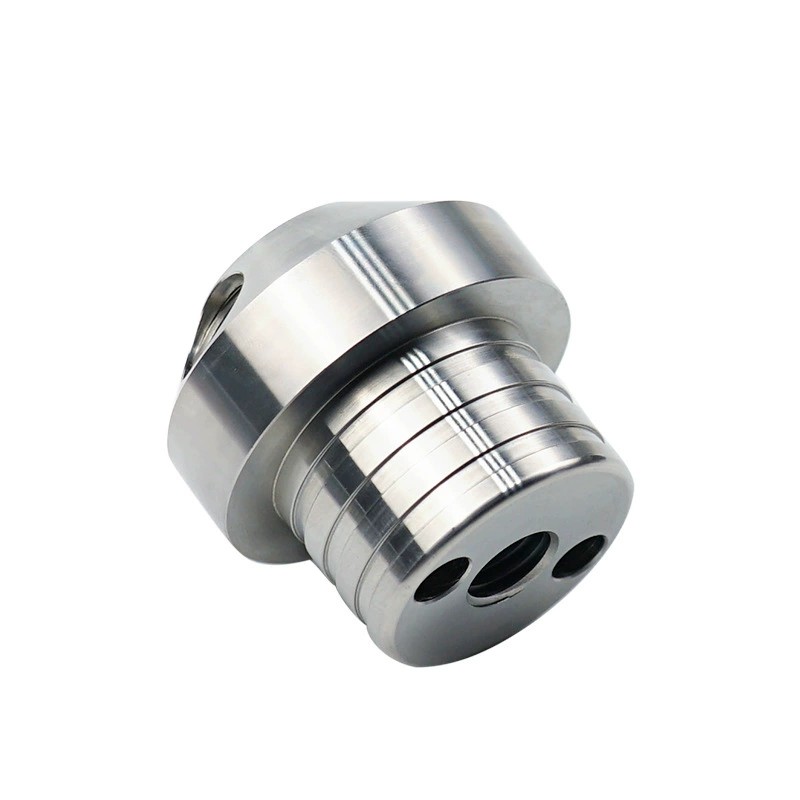 Surface FinishEnhance your parts with Chiheng's diverse surface finishing options. Our extensive range of over 10 finishes, including bead blasting, anodizing, chroming, and powder coating, allows you to tailor the appearance and performance of your components. Whether you need a corrosion-resistant finish, a visually appealing aesthetic, or a specific functional coating, we have the solution to meet your exact requirements.
Surface FinishEnhance your parts with Chiheng's diverse surface finishing options. Our extensive range of over 10 finishes, including bead blasting, anodizing, chroming, and powder coating, allows you to tailor the appearance and performance of your components. Whether you need a corrosion-resistant finish, a visually appealing aesthetic, or a specific functional coating, we have the solution to meet your exact requirements.
Trusted by
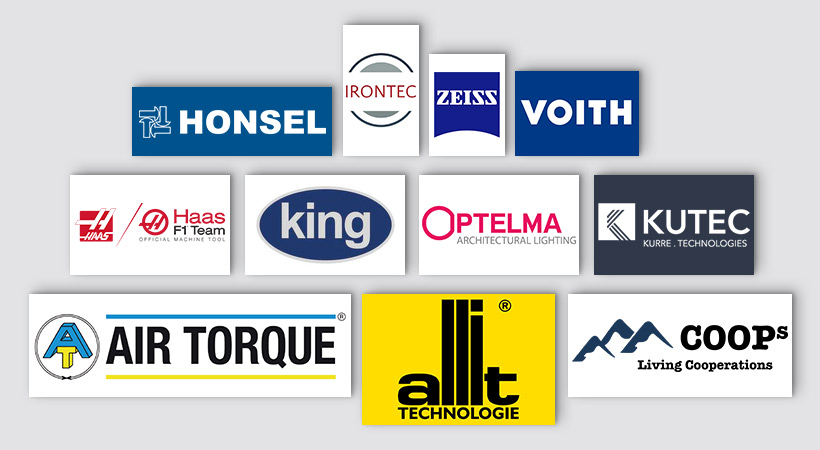
Precision is fundamental to CNC machining, and it is what distinguishes our capabilities in the turn milling industry. Even minor deviations from exact specifications can significantly affect the quality and functionality of the finished product. To address this, we use advanced CNC mill-turn machining technology, including high-precision equipment, state-of-the-art cutting tools, and precise measurement instruments, ensuring the utmost accuracy(Tolerance:0.01mm- +/-0.005mm) and repeatability.
The Power of Multitasking Centers
Modern mill-turn centers are hybrid tools that excel at multi-operation machining, such as 5 axis machining. These advanced CNC turn-mill centers offer unparalleled versatility, allowing manufacturers to perform a wide range of operations on a single platform. By integrating turning and milling capabilities, these multitasking machines significantly reduce setup times and improve overall productivity.
Chiheng CNC Equipment
Device Name
Quantity
Brand
Max Part Size
3-Axis CNC
50
FANUC-A-D14MIA
1500 x 800MM
4-Axis CNC
10
-
D600 x L1200MM
CNC Lathe
35
Tsugami
D300 x L1200MM
Lathe-Mill
3
Tsugami
D300 x L1200MM
CNC Swiss Type Automatic Lathe
5
Tsugami
D30 x L500MM
Our CNC mill-turn machining technological process
Chiheng has a rigorous technological process for producing high-quality molds, CNC machining parts, and samples. The process involves several key stages, including programming, raw material selection, CNC machining, quality detection, surface treatment, retesting, packaging, and transportation. This multi-step approach ensures that products meet strict quality standards throughout the production process. The company also emphasizes quality control from IQC to OQC, further demonstrating their commitment to producing reliable and affordable products.
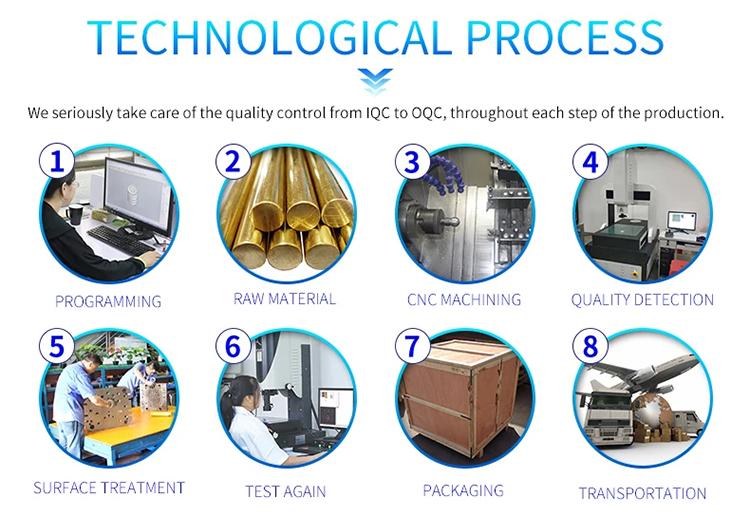
How to work with us?
Quality control process
We have a comprehensive quality control process that includes various inspection tools and equipment. These tools, such as calipers, micrometers, projectors, thread gauges, pin gauges, salt spray, torsion, and hardness, are likely used to measure, test, and ensure the quality of different parts and components. We are committed to producing high-quality products through rigorous quality control measures.
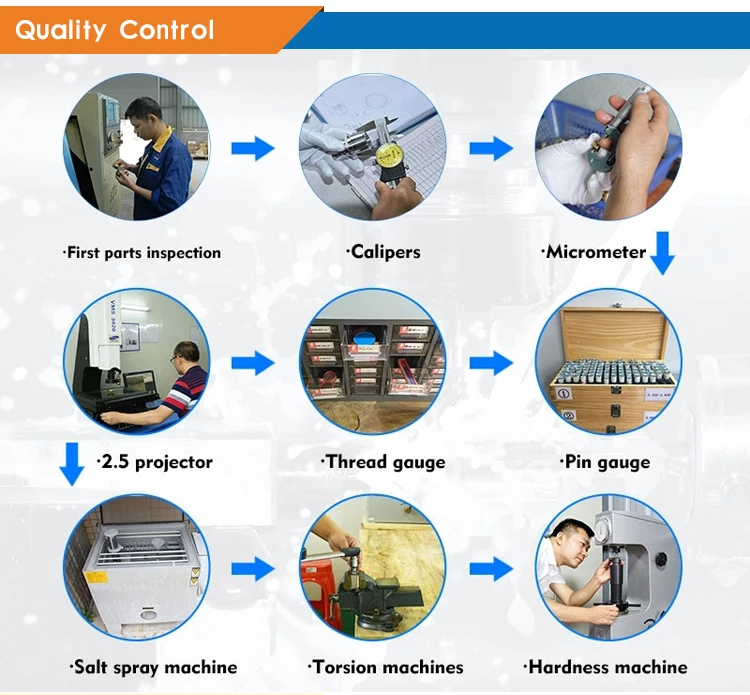
On-site quality control workflow
Chiheng has a multi-tiered quality control process that involves various stages and personnel. The process begins with on-site quality checks, including technician adjustments, product identification, and abnormal handling isolation. Further inspections are conducted by FQC, TPQC, and PCQ patrol teams. If defects are found, staff self-inspections, technician inspections, and production management inspections are initiated. A clear documentation system is in place, with first inspection records, patrol inspection records, product identification cards, and notice of defects handling procedures. This comprehensive approach ensures that products meet quality standards before they are released for warehousing or further processing.
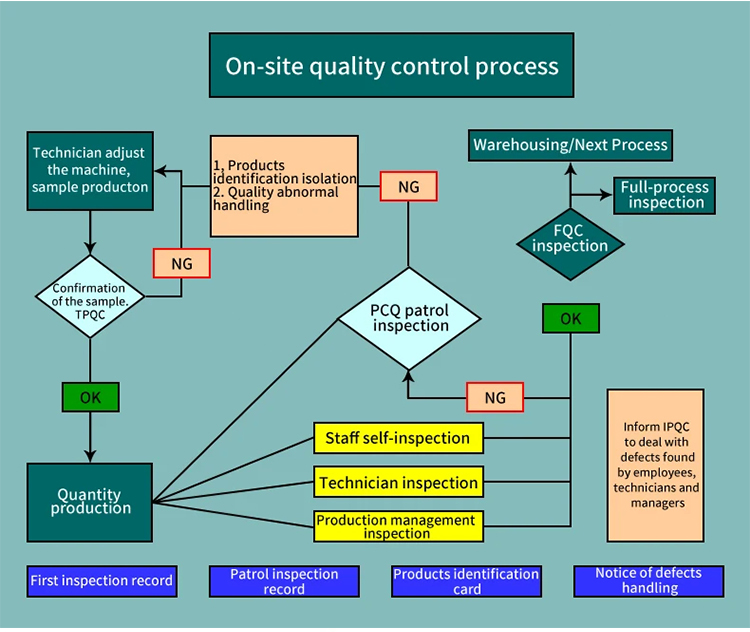
Chiheng integrated machining quality control tools
Chiheng has a comprehensive range of quality control tools, indicating a strong commitment to precision and accuracy in their manufacturing processes. The tools shown in the image include vernier calipers, micrometer calipers, roughness testers, thread gauges, diameter micrometers, height gauges, hardness testers, two-dimensional measuring machines (CMMs), and more. These instruments are essential for measuring dimensions, surface finish, and material properties, ensuring that products meet strict quality standards. This investment in quality control tools suggests that Chiheng is dedicated to producing high-quality products that meet the needs of their customers.
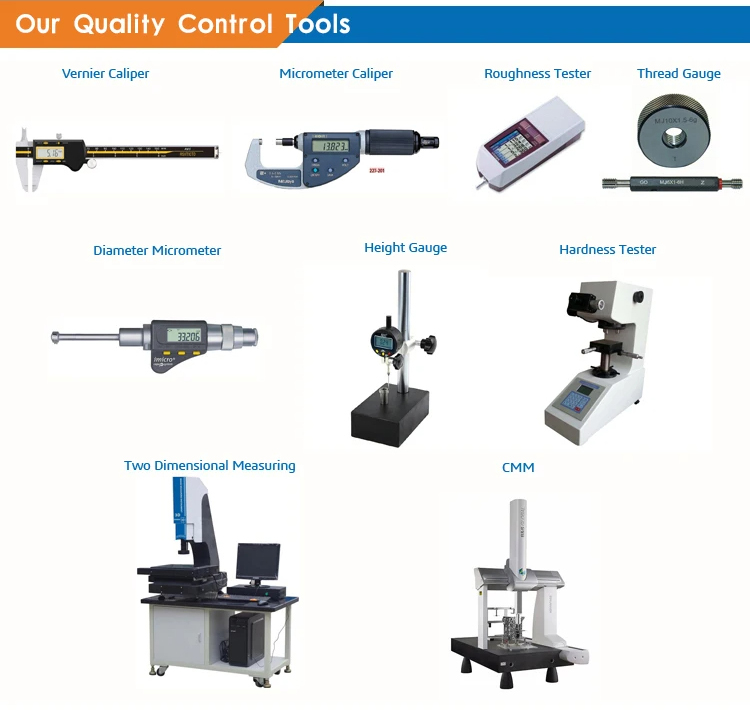
Chiheng has a wide range of shipping options available through various carriers. This includes major international shipping companies like CMA CGM, DHL, FedEx, Maersk, APL, OOCL, UPS, TNT, Evergreen Line, MYANG MING, and EMS. This suggests that Chiheng is able to efficiently deliver their products to customers worldwide, ensuring timely and reliable shipping services.
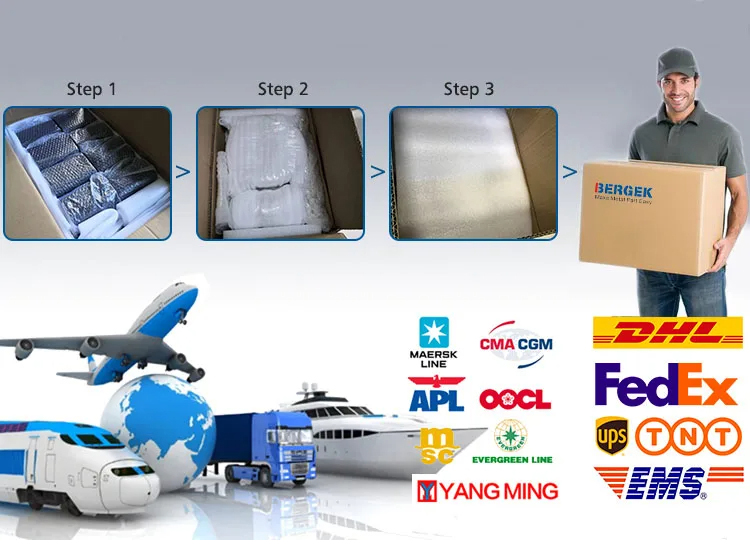
Our dedicated team of machinists and engineers focuses on refining the CNC machining process, from fine-tuning settings to choosing the right tools and optimizing toolpaths. We also prioritize ongoing education and process enhancement, keeping our team updated with the latest CNC machining innovations and best practices.
Why Choose Chiheng?
- Fast Quotes: Get your quote in just 6 hours, thanks to our team of 10 dedicated engineers.
- Reduced Waiting Time: Experience a 50% reduction in your waiting period for quicker turnarounds.
- Precision Tolerance: We deliver precision with a tolerance of ±0.0002 inches (5μm).
- Advanced Equipment: Over 100+ professional pieces of equipment to ensure top-quality production.
- ISO 9001 Certified: Quality you can trust, backed by ISO 9001 certification with comprehensive material certification.
-
Competitive pricing: Our efficient operations and competitive pricing structure make us a cost-effective choice for your die casting needs.
